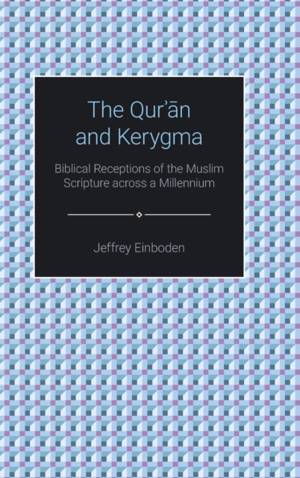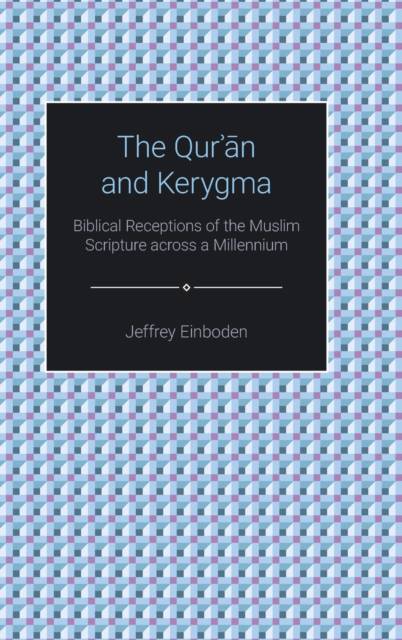
- Retrait gratuit dans votre magasin Club
- 7.000.000 titres dans notre catalogue
- Payer en toute sécurité
- Toujours un magasin près de chez vous
- Retrait gratuit dans votre magasin Club
- 7.000.0000 titres dans notre catalogue
- Payer en toute sécurité
- Toujours un magasin près de chez vous
The Quran and Kerygma
Biblical Receptions of the Muslim Scripture across a Millennium
Jeffrey EinbodenDescription
The Qur'ān's biblical foregrounds have long formed a controversial concern within Qur'ānic Studies, with field-leading scholars debating the Muslim scripture's complex relationship and "response" to the Judeo-Christian canon. This contentious subject has largely overshadowed, however, a reciprocal, yet no less rich, textual relationship which forms the focus of the present study. Rather than read the Muslim scripture in light of its biblical antecedents, The Qur'ān & Kerygma adopts the inverse approach, situating the Qur'ān as itself the formative foreground to pivotal acts of biblical translation, composition and commentary. The book argues, in particular, that Qur'ānic receptions have provoked and paralleled key readings and renditions of the Bible, enriching acts of creative authorship and interpretation that have contoured the legacy and language of Judeo-Christian "kerygma".
Spécifications
Parties prenantes
- Auteur(s) :
- Editeur:
Contenu
- Nombre de pages :
- 172
- Langue:
- Anglais
- Collection :
Caractéristiques
- EAN:
- 9781781794104
- Date de parution :
- 04-10-19
- Format:
- Livre relié
- Format numérique:
- Genaaid
- Dimensions :
- 156 mm x 234 mm
- Poids :
- 417 g







